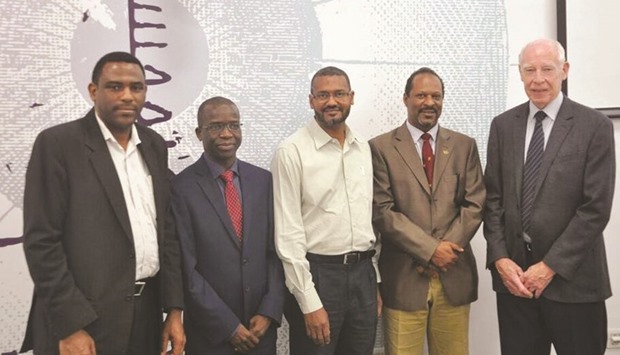Qatar University College of Pharmacy (QU-CPH) recently held a workshop titled ‘Drugs in Sports II’, for exploring the use and misuse of drugs by athletes and defining the roles and responsibilities of healthcare practitioners and athlete support personnel.
Organised by CPH Continuing Professional Development for Health Care Practitioners (CPD-HCP) Programme, the event attracted around 90 healthcare practitioners, scientists and researchers from various healthcare institutions across Qatar including pharmacists, physicians, and nurses.
The keynote speaker Dr David Mottram, emeritus professor at Liverpool John Moores University’s School of Pharmacy and Biomolecular Sciences, is also collaborating with CPH in the development of undergraduate and postgraduate programmes on drug use in sports. He gave a presentation on ‘Current issues in Doping and Anti-Doping in Sports’.
The programme agenda comprised four plenary discussions facilitated by CPH associate professor of pharmacy and co-ordinator of the CPD programme Dr Nadir Kheir, CPH associate professor of pharmacy and course co-ordinator of drugs in Sport Dr Ahmed Awaisu, Hamad Medical Corporation (HMC) clinical pharmacy specialist Afif Mohamed Ali, head of registration and drugs pricing section, Pharmacy and Drug Control at the Ministry of Public Health Ahmed Mohamed Hussein Babiker, and CPH PharmD students Aya Issa and Somaia Abdelaziz.
Discussions focused on “Inadvertent doping (Case Study of Maria Sharapova)”, “Therapeutic Use Exemption (Case Study of Fancy Bears Cyber Hack and Bradley Wiggins)”, “Sanctions by Anti-Doping Organisations (The McLaren Report and Controversies surrounding sanctions for Russian athletes at the Rio 2016 Olympic and Paralympic Games)”, and “Prohibition of Glucocorticoids in Sports (Current issues and future directions)”.
CPH dean Dr Mohamed Diab said that the event aligns with the priorities of Qatar, which has become a regional and global hub for sports. “It also underlines CPH commitment to raise its students’ awareness on issues that are of the interest of the society. In Qatar, healthcare professionals have the potential to provide a valuable role in educating athletes to prevent inadvertent and intentional use of prohibited drugs and to be a part of clinical services teams.”
Dr Kheir added that the event, well-attended by healthcare professionals from all over Qatar, is another testimony that health practitioners increasingly recognise their potential role in preventing doping in sports.

Some of the officials at the workshop.
